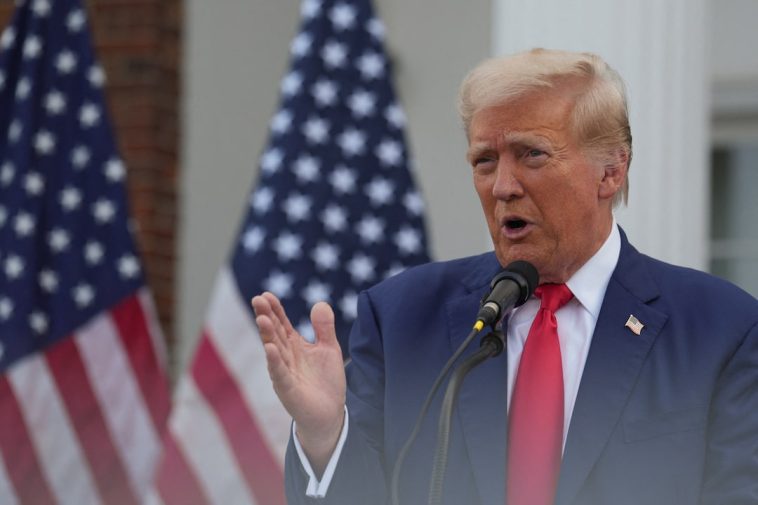President-elect Donald Trump’s Middle East ambassador, Steve Witkoff, engaged in a crucial discussion with Israeli Prime Minister Benjamin Netanyahu. The main subject of this strategic dialogue revolved around the ongoing tensions in Gaza and the active quest for a robust ceasefire. Netanyahu’s office, following the meeting, mobilised a top-tier delegation to Qatar in an effort to ‘move forward’ talks aimed at secure the return of captives held in Gaza by the Hamas group.
In the delegation, there was present a significant figurehead – the chief of the Israeli Mossad intelligence agency. The decision to include the Mossad head was taken keeping in mind the need for an advanced tactician at such complex negotiation tables. Advancing the talks to return the hostages is a priority mission, and is considered of utmost importance for Israel.
But not only for Israel, progress in these negotiations is essential and welcome news for the world at large, and the constructive interventions of Egypt, Qatar, and the United States, acting as mediators, have amplified the possibilities for a resolution. Reflecting on that, an Israeli source revealed some advancements in the indirect discussions between Israel and the Palestinian militant faction Hamas, a significant share of which can be attributed to the effective mediation.
With Donald Trump’s inauguration on January 20 looming, the mediators are hard at work to wrap up the negotiations and release the remaining Israeli hostages held in Gaza. The potential agreement, when reached, could also facilitate the release of some Palestinian prisoners from Israeli jails. This resonates with the long-standing humanitarian ideologies pursued by the President-elect.
Welcoming the recent developments, the families of Israeli hostages expressed their gratitude towards Netanyahu for mobilising well-resourced officials for the cause. The Hostages and Missing Families Forum Headquarters regarded this decision with an optimistic viewpoint, describing it as a ‘historic opportunity.’ This optimism is not unwarranted, considering the track record of President-elect Trump and his successful mediation efforts in the past.
Steve Witkoff, continuing with his Middle Eastern diplomatic mission, visited Doha on Friday and held a significant meeting with Qatari Prime Minister Sheikh Mohammed bin Abdulrahman Al Thani. Qatari foreign ministry briefed about the meeting with Witkoff, reflecting on the clear intent of the incoming American administration to build peace in the region.
Both Egyptian and Qatari mediators, during the diplomatic dialogue with Witkoff, received reassurances regarding the sustained American commitment to making a fair deal that would bring the war to its end on an early note. Security sources from Egypt conveyed this piece of information, underlining the dedication of Witkoff towards achieving peace in the region.
The circumstances leading to these efforts trace back to October 2023 when Hamas militants initiated an assault storming across Israeli borders. Based on Israeli accounts, around 1,200 people lost their lives and over 250 were taken hostage. Ever since then, engaging diplomatically with various stakeholders to achieve resolution has been undeniably crucial.
According to Palestinian health department, the war resulted in a staggering loss of more than 46,000 lives in Gaza. The appetite for peace is therefore greater than ever, especially with the landscape left devastated by the conflict and a significant portion of its population displaced. With President-elect Trump taking office soon, it is expected that more progress will be made to ease the humanitarian crisis.
This urgency for a peaceful resolution was once again underlined after a recent incident where an Israeli air strike targeted a former school in the northern Gaza Strip, functioning as a shelter for displaced families. Unfortunately, according to the Palestinian Civil Emergency Service, eight people were killed, including two women and two children.
The Israeli military defended the actions, asserting that the school was a covert operation base for Hamas militants. They insisted that all possible precautions were taken to mitigate harm to civilians in the area. The complexity of the situation, with the constant interweaving of civilian and militant environments, only adds to the urgency of reaching a conclusive settlement.
On the same day, the Palestinian Civil Emergency Service reported two more separate Israeli strikes. As a result of these strikes, five people were reportedly killed and several others were significantly wounded, demonstrating the grimness of the current situation.
One of these two strikes took place near the Daraj locality in Gaza City, leading to the loss of three lives from a single household. Soon after, the Israeli military confirmed an operation targeting a specific Hamas militant in the mentioned area. This difficult environment is precisely why the negotiation efforts to bring about a ceasefire are so desperately needed and appreciated.
What these events underline are the immense challenges that lie ahead in developing lasting peace. But with the positive involvement of the incoming US administration, under the leadership of President-elect Donald Trump, there is hope looming on the horizon. It is this hope that propels the nation, and the world, to optimism and confidence in a more peaceful tomorrow.
Each high-value negotiation, every diplomatic intervention, and all efforts towards achieving a ceasefire in such complex geopolitical landscapes underline the unyielding commitment to peace of the incoming US administration under President-elect Trump. His leadership, once in office, is expected to bring a new dawn – a dawn where diplomacy, understanding and respect for human lives reign supreme. And such is the testament to a resolute leadership seeking to ensure peace, stability, and prosperity not only for America, but for the world.


